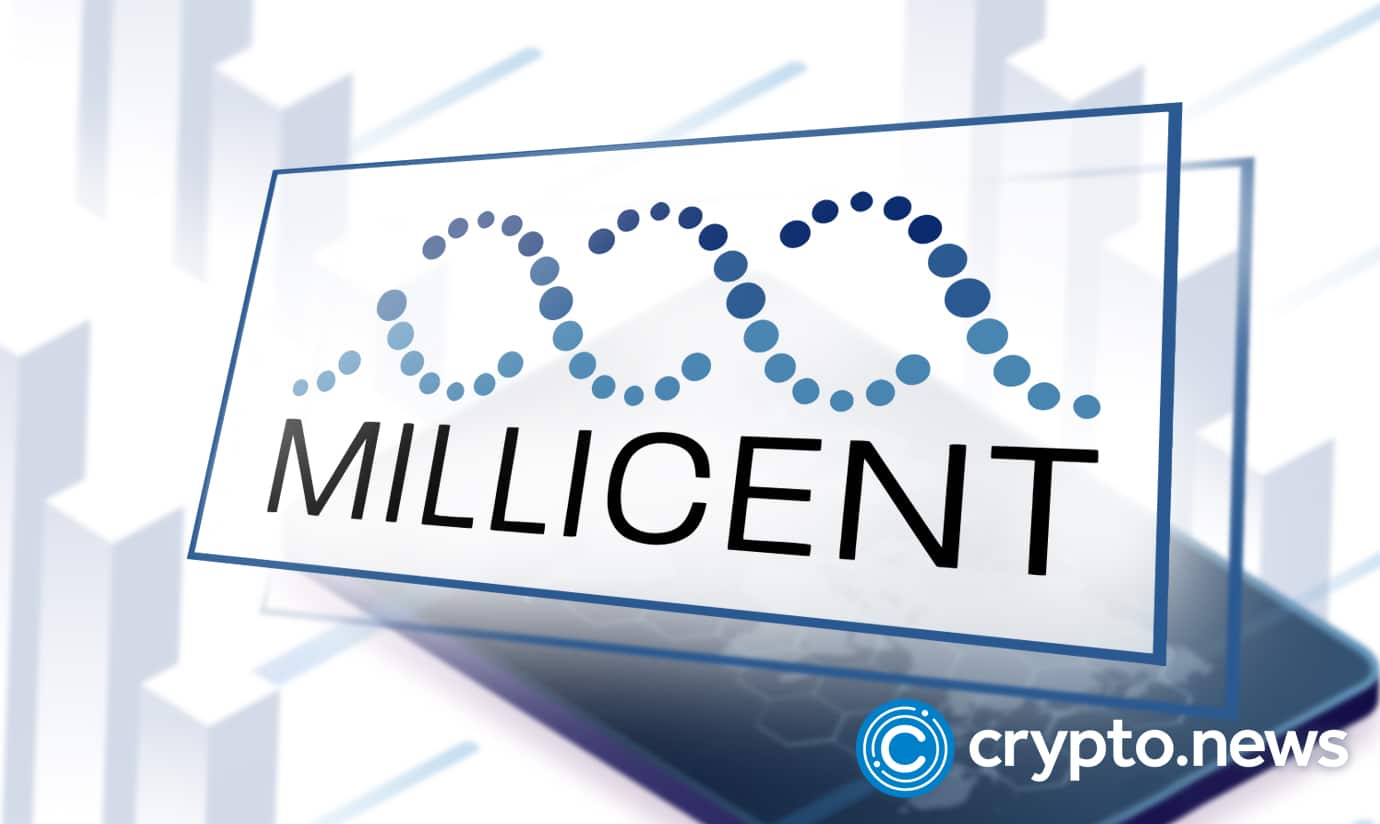How Millicent Provides A Suitable Alternative to Visa And Other Legacy Payment Systems

Innovation in decentralized finance allows for more complex and advanced products and services. Millicent, a distributed network co-funded by the UK Government, emphasizes providing Visa-like services to a global audience. More importantly, it does so without relying on intermediaries, empowering users every step along the way.
What Is Millicent Exactly?
The Millicent project encompasses a hybrid Layer-1 distributed ledger network providing infrastructure capabilities to enable global finance. Thanks to parallel transaction processing, the network can sustain a throughput of over 10,000 transactions per second and allows future scalability.
Users of Millicent benefit from very fast, ultra-secure, and incredibly cheap transaction fees. Millicent also refers to its efficiency in the fees department, as it costs a fraction of a cent to conduct transactions on the network. Moreover, the infrastructure is accessible by third-party developers who can leverage the technology to build any service, protocol, or product they see fit.
Another benefit of Millicent is its connection to both existing and future blockchains and existing legacy banking rails. It is the missing cog in the machine of universal finance. Millicent issues regulatory-compliant stablecoins, which can move between ecosystems and across borders without drawbacks or approval.
It is worth noting Millicent has the financial backing of the UK Government and its R&D body, culminating in a UKRI grant in June 2021. Additionally, the project raised extra funding through a brief angel round, enabling the team to build the global payments infrastructure.
Competing With Industry Behemoths Like Visa
Although Millicent has much promise on paper, it will be tough to compete with established payment processors, including Visa or Mastercard. Both companies have achieved legacy status in traditional finance, powering billions of transactions every month. However, there is much room for competition, as Visa has some drawbacks to consider too.
Even though Visa has been around for a while, it is also an outdated system. In addition, high fees make the service unfeasible to use for small merchants and business owners. Even large retailers – such as Amazon – have issues with the fees they have to pay to use Visa as a payment option.
Moreover, the accessibility of Visa payment cards remains an issue. If a user does not qualify for a card or has no access to banking products and services, to begin with, they cannot be part of the global finance network. It is one of the drawbacks of using intermediary-based solutions that require approval and human intervention. One would think things improved on that front in 2022, but the uneven status quo remains in effect today.
One other aspect to consider is how the Visa network is not infallible. In fact, the company faced a massive outage in May 2018 due to a hardware failure. Although it is a one-off incident, it serves as a stark reminder of how fragile centralized systems are. When a small group of people controls most of the money flows worldwide, issues like these can have tremendous consequences.
The Era Of Changing Money
In this age of ever-changing financial preferences, one must wonder how long behemoths like Visa will remain relevant. Consumers flock to digital and mobile payments, reducing the need for cash and payment cards alike. Although mobile solutions like Apple Pay or Google Pay still work with payment cards, they make people rethink their approach to payments.
Moreover, the advent of decentralized finance – or DeFi – shows the need for alternative solutions across the board. Consumers and institutions show an increasing appetite for decentralized borrowing, lending, yield farming, staking, and more. DeFi introduces many more solutions to acquire finances and put one’s existing holdings to work without involving intermediaries taking custody of funds.
Furthermore, Millicent introduces cheaper forex and new economic models – including micropayments and programmable money for a circular economy – to unlock new use cases. Thanks to its faster and more efficient payment rails, billions of dollars can be saved in fees every year.
It seems unlikely an industry giant like Visa would ever explore decentralized finance or seek composability with it. Instead, that innovation will come from within DeFi, as displayed by projects like Millicent. The desire to be interoperable with legacy systems is outspoken in decentralized finance, paving the way for broader financial inclusion.















